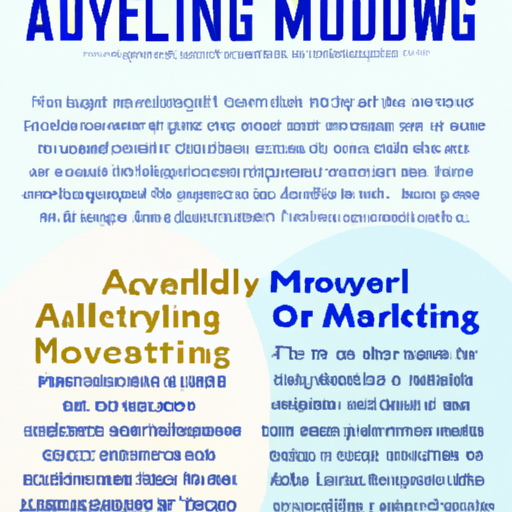Imagine you’re planning a move to a new home. With so many options for moving services, it can be overwhelming to find the right one. That’s why it’s important to consider the track record and reputation of a company before entrusting them with your precious belongings. In this article, we’ll take a closer look at Allied V. Mayflower Moving Service, a trusted name in the industry. With their expertise, stellar customer service, and commitment to ensuring a smooth and stress-free moving experience, it’s no wonder why so many people choose Allied V. Mayflower for their moving needs.

Background
Overview of Allied and Mayflower
Allied and Mayflower are two prominent moving service companies that have been operating in the industry for several years. Both companies offer a wide range of services, including local and long-distance moving, storage solutions, and packing services. With a strong presence in the market, they have developed a reputation for providing quality moving services to individuals and businesses across the country.
History of the Companies
Allied and Mayflower have a rich history, which has contributed to their success and growth in the moving service industry. Allied was founded in 1928 and has since become one of the largest transportation companies in the world. It has a vast network of agents and operates in more than 130 countries.
On the other hand, Mayflower has a history dating back to 1927. It started as a cooperative of small moving companies and grew to become one of the leading names in the industry. Mayflower is known for its innovative approach to moving and its commitment to customer satisfaction.
Competitive Landscape
The moving service industry is highly competitive, with several players vying for market share. Allied and Mayflower have been key competitors in this landscape, constantly striving to outperform each other and meet the evolving needs of their customers. Both companies have successfully established themselves as reliable and trustworthy providers of moving services, making them go-to choices for individuals and businesses alike.
Reasons for Legal Dispute
Analysis of Contractual Agreements
The legal dispute between Allied and Mayflower arises from alleged breaches of contractual agreements. Before engaging in any moving services, both parties entered into contracts that outlined the rights and obligations of each party. These agreements are vital in ensuring a smooth and seamless moving process, protecting the interests of both the moving company and the customer.
Allegations of Breach of Contract
Allied has accused Mayflower of breaching the terms of the contract by failing to deliver the goods in the agreed-upon timeframe and condition. They claim that Mayflower’s negligence and lack of care resulted in damages to the customers’ belongings during the moving process. These allegations highlight the importance of upholding the contractual obligations to provide a satisfactory moving experience.
Claims of Damages and Losses
As a result of the alleged breaches, Allied claims significant damages and losses. They argue that Mayflower’s actions have caused financial harm and emotional distress to their customers. These claims emphasize the impact that a moving service provider’s negligence can have on the well-being of customers and their property.
Legal Proceedings
Filing of Lawsuit
To address the dispute, Allied initiated legal proceedings by filing a lawsuit against Mayflower. The lawsuit highlights the seriousness of the allegations and the determination of Allied to seek legal remedies for the alleged breaches of the contractual agreements. By resorting to legal action, Allied aims to protect the rights and interests of their customers and their reputation as a reliable moving service provider.
Jurisdiction and Venue
The lawsuit is being filed in a court of appropriate jurisdiction, which typically depends on the location where the alleged breaches occurred or where the parties agreed to resolve any disputes. The selection of the court ensures that the case is heard by a legal authority with the competence and authority to render a judgment on the matter.
Parties Involved
The legal proceedings involve two main parties: Allied and Mayflower. Both companies are represented by their legal teams, consisting of experienced lawyers specializing in contract law and litigation. The involvement of these professional legal representatives ensures that the interests of both parties are adequately protected and represented throughout the legal proceedings.
Timeline of Key Events
A timeline of key events is essential in understanding the sequence of events that led to the legal dispute. This timeline serves as a chronological record of the actions taken by both Allied and Mayflower, providing a comprehensive overview of the circumstances surrounding the breach of contract allegations. It allows for a clear understanding of the timeframes and the actions that led to the legal action taken by Allied.
Claims and Counterclaims
Allied’s Claims
Allied’s claims revolve around the alleged breaches of contractual agreements by Mayflower. They argue that Mayflower failed to deliver the goods within the agreed timeframe and in an acceptable condition. Furthermore, Allied claims significant damages and losses resulting from Mayflower’s actions. These claims serve as the foundation for Allied’s pursuit of legal remedies and compensation for their customers.
Mayflower’s Defense
Mayflower refutes the allegations made by Allied and presents a strong defense to counter the claims. They argue that the delays and damages were caused by unforeseen circumstances and events beyond their control, such as weather conditions and global supply chain disruptions. They emphasize their commitment to customer satisfaction and assert that any damages or losses incurred were unintentional.
Counterclaims and Cross-Claims
As part of the legal proceedings, Mayflower might also counterclaim, asserting that Allied is at fault for any damages and losses incurred during the moving process. These counterclaims highlight the multifaceted nature of the legal dispute and the complexity of determining who is responsible for the alleged breaches and resulting damages.

Legal Arguments
Interpretation of Contractual Obligations
One of the central legal arguments in the dispute between Allied and Mayflower revolves around the interpretation of the contractual obligations. Both parties are likely to present their understanding of the agreements and how they believe those obligations were met or breached. The court will carefully review the terms of the contracts to determine the extent to which each party fulfilled their obligations.
Proving Breach of Contract
To establish a breach of contract, Allied needs to demonstrate that Mayflower failed to fulfill their contractual obligations. This burden of proof requires presenting evidence that supports their claims and shows that Mayflower’s actions deviated from the agreed-upon terms. The court will evaluate the evidence presented and determine whether a breach of contract occurred.
Causation and Damages
In addition to proving the breach of contract, Allied must establish a causal link between Mayflower’s actions and the damages suffered. This element requires demonstrating that the alleged breaches directly resulted in the damages and losses claimed. Through evidence and expert testimony, Allied aims to substantiate the connection between Mayflower’s actions and the harm inflicted upon their customers.
Expert Witnesses
Role of Expert Witnesses
Expert witnesses play a crucial role in legal proceedings by providing their professional opinion and expertise on relevant matters. In the case of Allied vs. Mayflower, both parties are likely to call upon expert witnesses who specialize in the moving service industry, contract law, logistics, and damage assessment. These experts offer valuable insights and analyses to enable the court to make informed judgments.
Qualifications and Testimony
The qualifications of expert witnesses are of utmost importance as they can significantly impact the weight given to their testimony. Both Allied and Mayflower will carefully select expert witnesses who possess the necessary qualifications, experience, and expertise in their respective fields. These witnesses will provide testimony that supports their party’s claims and assists the court in understanding complex aspects of the moving service industry and contractual agreements.
Impact on the Case
The testimony of expert witnesses can greatly influence the outcome of the legal dispute. Their opinions and analyses provide an in-depth understanding of the technical aspects of the moving process, the industry standards, and the application of contract law. The court will rely on these expert testimonies to make informed decisions and evaluate the claims and counterclaims presented by both parties.

Settlement Negotiations
Attempts to Reach Agreement
Before proceeding with a full-fledged court trial, it is common for parties involved in a legal dispute to explore settlement negotiations. These negotiations allow the parties to discuss the possibility of reaching an agreement that resolves the dispute without the need for a court decision. Settlement negotiations can save time, costs, and potential reputational damage for both Allied and Mayflower.
Mediation and Arbitration
Mediation and arbitration are alternative dispute resolution methods that parties may consider during settlement negotiations. In mediation, a neutral third party facilitates discussions between the parties involved, assisting them in finding a mutually agreeable solution. In arbitration, a neutral third party acts as a judge and renders a binding decision based on the arguments presented by both parties. These methods provide opportunities for finding a resolution outside the courtroom.
Terms and Conditions Discussed
During settlement negotiations, parties will discuss various terms and conditions that aim to address the issues at hand. These may include financial compensation for damages, changes in business practices, or implementation of additional quality control measures. The negotiations will involve give-and-take from both Allied and Mayflower as they seek to find a resolution that satisfies their respective interests.
Court Decision
Judge’s Ruling
Upon considering all the arguments, evidence, and testimonies presented, the judge will make a ruling based on the applicable laws and contractual obligations. The ruling will determine whether Mayflower breached the contract with Allied and, if so, the extent to which they are liable for damages and losses incurred. The judge’s decision will have far-reaching consequences for both parties involved in the legal dispute.
Legal Basis and Justification
The judge’s ruling will be based on the specific legal provisions, precedents, and principles that govern contract law and the moving service industry. The judge will provide a detailed legal basis and justification for the decision, outlining how the evidence and legal arguments presented by both parties influenced their judgment. This comprehensive explanation ensures transparency and accountability in the legal process.
Awarded Damages and Remedies
If the judge rules in favor of Allied, they may be awarded damages and remedies to compensate for the losses suffered. The awarded damages will depend on the evidence presented and the extent of the damages claimed. Additionally, the court may provide specific remedies, such as requiring Mayflower to implement new policies or quality control measures to prevent future breaches of contract.

Appeals and Reconsideration
Parties’ Response to the Court Decision
Once the court delivers its decision, both Allied and Mayflower have the option to respond through various legal means. If parties are dissatisfied with the ruling, they may choose to file appeals or request a reconsideration of the judgment. These legal avenues allow parties to challenge the decision based on specific grounds, such as errors of law or fact made during the trial.
Filing of Appeals
Filing appeals requires parties to present their arguments before higher courts, typically appellate courts, seeking a review of the previous decision. Appeals focus on demonstrating errors or misapplication of the law that significantly impacted the outcome of the case. The appellate court reviews the evidence and legal arguments, making an independent determination of the dispute.
Review by Higher Courts
In some cases, the legal dispute may progress to higher courts, such as state supreme courts or federal courts. These courts have the authority to review decisions rendered by lower courts and provide final resolutions to the legal dispute. The involvement of higher courts ensures a thorough review of the legal arguments and an examination of any errors that may have occurred during the trial.
Impact on the Industry
Reputation and Consumer Trust
The legal dispute between Allied and Mayflower can have a significant impact on the industry’s reputation and consumer trust. Both companies have established themselves as reliable and reputable service providers, known for their commitment to customer satisfaction. The outcome of the legal proceedings and the public’s perception of the case may influence how consumers view these companies and affect their future business prospects.
Changes in Business Practices
A high-profile legal dispute can prompt companies to reevaluate and revise their business practices to prevent similar incidents in the future. Allied and Mayflower may choose to implement additional quality control measures, training programs, or stricter contractual obligations to avoid breaches and maintain customer satisfaction. These changes benefit both the companies and the customers, ensuring a more reliable and secure moving service experience.
Precedent for Similar Cases
The court decision in the Allied vs. Mayflower case can serve as a precedent for similar legal disputes in the moving service industry. The legal arguments, interpretations of contractual obligations, and examination of damages and losses can guide future cases and provide direction for courts in handling similar disputes. This precedent contributes to the development and evolution of contract law in the context of moving service contracts.
